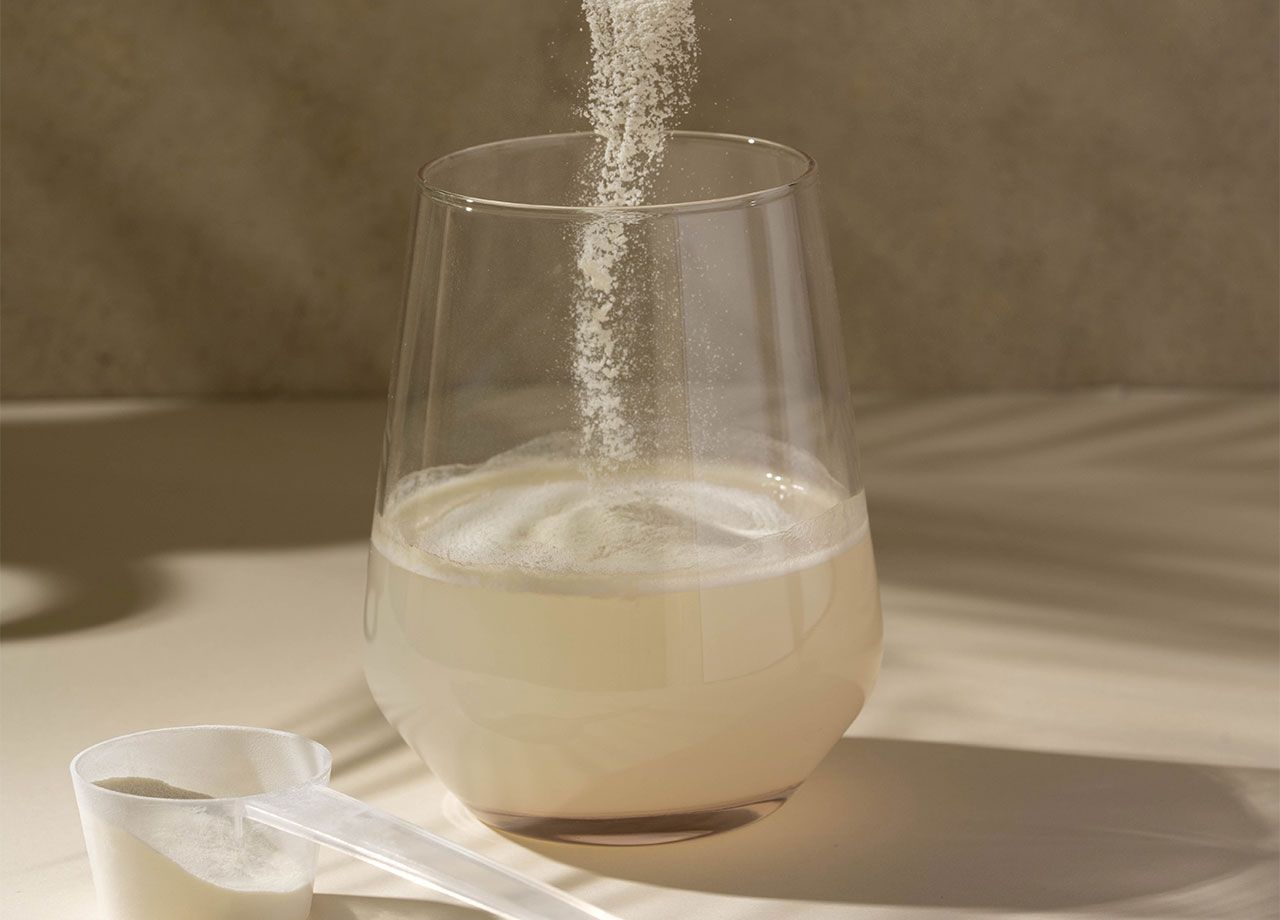When we talk about collagen and ways to get more of it as we age, the focus sometimes turns to pricey in-office treatments that can help. Another centerpiece of the discussion is good, but also pricey, skincare products like prescription-strength retinol and creams with peptides. There’s no reason to knock any of those things, as they can absolutely help. But you could be sleeping on much simpler, effective ways to train your body to deplete less collagen over time and slow down the effects of the aging process on your skin.
Collagen is a crucial protein that plays a pivotal role in giving your skin structure and support. As we age, we lose collagen, and then we lose it at a more rapid pace after menopause. As Dermatologist Tony Youn explains in this video, we don’t have to just allow our collagen levels to dip down without taking a few steps that can help retain it for longer.
Dr. Youn points out a few unexpected ways you can “stop losing collagen” to avoid having paper-thin skin.


1. Intermittent Fasting
What does intermittent fasting have to do with retaining collagen, you might be wondering. In order to keep the skin cells renewing themselves, it’s important to give them time to recycle — this is a process that Youn says is called “autophagy.” In most western diets, we are taught to be constantly eating. This creates a situation where your body is also constantly at work and doesn’t have the resources to devote to recycling cells. Limiting the amount of time that you spend eating or drinking allows your body to renew cells. Doing a 12-hour fast each day (stop eating at 8pm and start again at 8am) is a good, easier way to start IF, although the ideal fast is 12 hours, Youn explains. Avoid anything with carbs and protein, but stay hydrated with water, coffee, or tea.

2. Watch Blood Sugar Levels
Making good choices around food includes limiting the amount of sugar that you consume — not just for your skin, but for your health, as well. Even though the media and government have focused on fat in foods as being bad for us, it’s actually sugar that can wreak havoc on our health and skin, Youn explains. Eating sugar causes a processed called glycation in which sugar bonds to the collagen in your skin and creates AGEs that cause the collagen to break down. Sugar can also cause chronic inflammation (every time you get a sugar spike, you get an insulin spike). Inflammation is a root cause of so many health issues, but also skin issues like psoriasis and acne.

3. Anti-Aging Creams
If you’re staring at a shelf of creams and serums and wondering if you just wasted money, the answer is no. But the products that you choose do matter. Youn says he recommends a topical retinol or its non-irritating alternative bakuchiol. Both of these ingredients can help boost collagen production and minimize the appearance of fine lines and wrinkles.

4. Collagen Peptide Supplements
Youn admits there are some experts who underplay how much a collagen supplement can do for your skin, and many of them claim the collagen in supplements is simply too large to be able to be absorbed by the body. But Youn says there are studies that have found it can make a difference when it comes to collagen synthesis and that it’s worth incorporating a collagen peptide supplement (such as a powder that you can mix into water or coffee) into your routine.

5. Resveratrol
Alcohol is a no-no when it comes to your overall health and skin health. It saps you of hydration and contributes to inflammation — so keeping it to a minimum is recommended by all healthcare professionals. With that said, resveratrol, which is found in red wine, can be wonderful for your skin because it is an antioxidant found in the skin of the grape. Resveratrol also appears to have an effect on longevity. Youn recommends limiting yourself to one glass of red wine each day. You can also take resveratrol supplements.

























